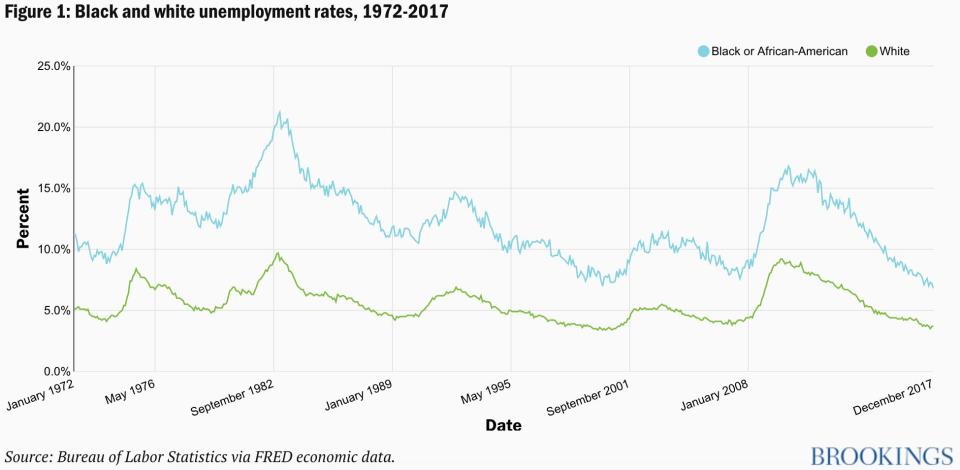5G can ‘improve quality of life’ for disadvantaged communities: report
For people living in disadvantaged communities, smartphones are often the only way they have to access the internet.
Inadequate internet access — whether through broadband connections at home or the office — means lost opportunities, not just socially, but economically as well.
But according to a new report from the Brookings Institution, next-generation 5G technology, which promises greater speed of wireless networks, has the ability to be a game changer for the people living in these areas.
5G will improve quality of life in terms of jobs, health care and transportation, says Brookings’ Center for Technology Innovation fellow Nicol Turner Lee. Particularly for people on the margins, getting “access to faster networks will allow them to engage in social services in ways that they could not engage before,” she says. (Verizon has been the first wireless carrier to roll out 5G technology in Los Angeles, Houston, Indianapolis and Sacramento.)
Lee cautions that having a smartphone is not the same as having reliable high-speed internet access. According to the Pew Research Center, 77% of Hispanics, 77% of whites, and 75% of African-Americans own smartphones. Yet over 24 million Americans lack access to a residential broadband connection, according to the FCC.
“There are people who have smartphones in their pockets but they’re connected to really poor networks where they cannot engage the true power of what that smartphone can do,” she says.
Impact on unemployment rate
Brookings research found that smartphone-dependent communities tend to overlap with those that have limited economic advancement and higher unemployment rates.

Lee attributes the higher unemployment rate among African-Americans to the lack of digital access in their communities, which are often economically disadvantaged.
As more services and conveniences go online, people with inadequate internet access are at a disadvantage when it comes to economic mobility. “The 13% of Americans a couple years ago that were offline tended to be in these categories of poverty, older, foreign-born Americans. People living in rural communities. And if you [compare that with] demographic information when it comes to economic mobility, they’re pretty much the same people,” she said.
Job opportunities
The current government shutdown is the latest example of how people with access to reliable broadband are making ends meet.
“I was coming back from the airport over the weekend, this one Uber driver is furloughed and she’s taken to the digital share economy,” Lee says. “She’s doing Uber while she’s waiting. That’s the power of having access, that’s what it allows you to do. I’m not saying it’s a substitute by no means of a paycheck, but that access to technology allows you to be creative to get through certain circumstances.”
More affordable health care for disadvantaged communities
Health care is another example where 5G can make a difference. Better internet access can often mean saving on health costs and greater access to medical providers remotely.
“You can have that type of expectation of having high confidence in the network because you want to watch a Netflix movie, but what I’m talking about is for people with limited access to social services, health care, education, transportation, energy. [These networks] will create healthier communities,” she said.
Lee says 5G has the potential to play a central role in medical care in the future.
“People will be able to wear a cardiac device and transmit in real time their cardiac results to their doctor who could at that moment determine that you were about to go into cardiac arrest,” she says.
Follow Sibile Marcellus on @SibileTV
More from Sibile:
Ocasio-Cortez should worry markets, Horizon’s chief global strategist says
Apple dominates as mobile device of choice for corporate America: Survey
The 15 most promising jobs, according to LinkedIn
